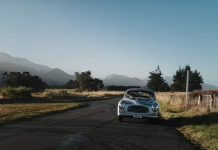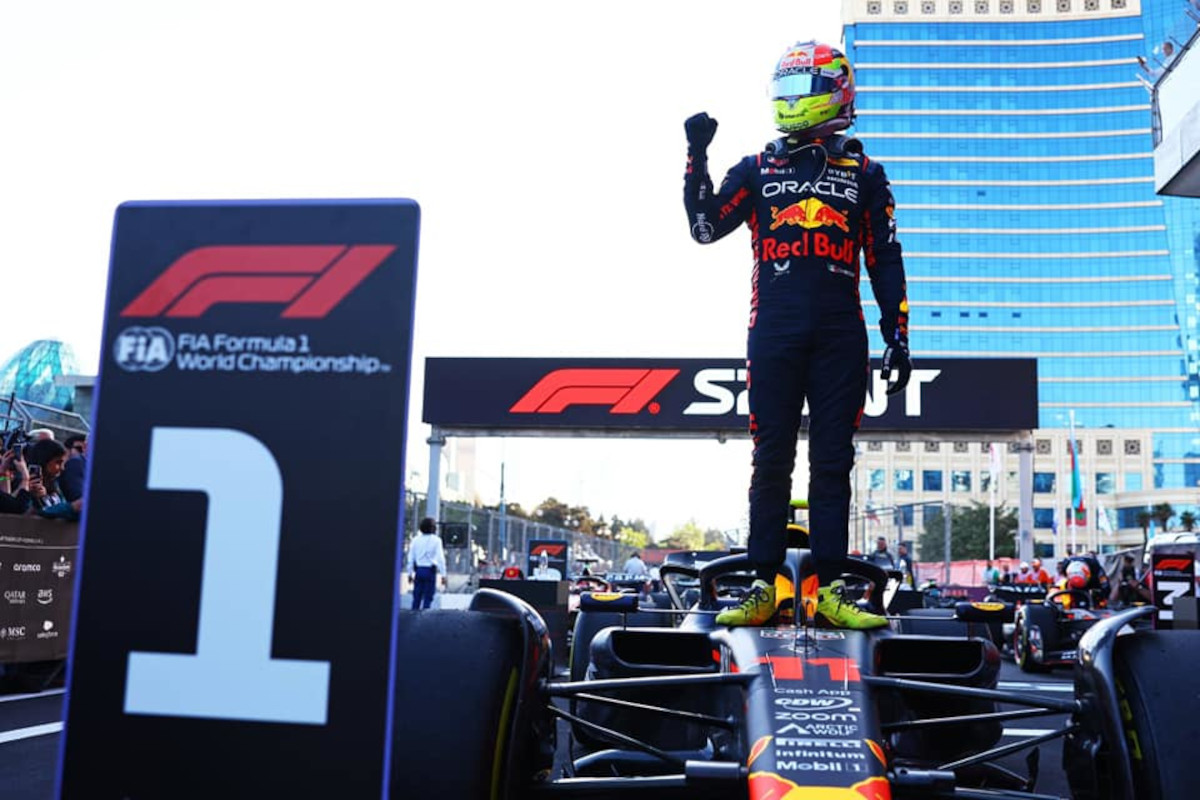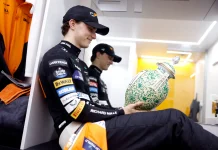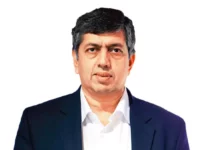Formula 1 (F1) has always been a sport filled with high stakes, intense competition, and complex politics. Recently, a significant development unfolded as Michael Andretti’s bid to join F1 as a new team for the 2026 season was rejected. This decision has sparked a flurry of discussions and debates within the motorsport community. In this article, we’ll dive deep into the reasons behind the rejection, the key players involved, and the implications for the future of F1.
The Background: Andretti’s Bid for F1 Entry
Michael Andretti, a prominent name in motorsport, has long harbored ambitions to enter F1. His team, Andretti Autosport, has established itself as a force to be reckoned with in IndyCar and other racing series. With the backing of General Motors and a planned partnership with Cadillac, Andretti’s F1 bid seemed well-positioned to succeed.
In 2023, the FIA opened a tender process for new teams to join the F1 grid. Andretti’s application was the only one to pass the initial technical and financial assessments. This created a sense of optimism among fans and industry insiders that the grid could expand beyond its current 10 teams.

Mohammed Ben Sulayem’s Vision for F1 Expansion
FIA President Mohammed Ben Sulayem was a strong advocate for expanding the F1 grid. He believed that adding new teams would inject fresh energy into the sport and potentially open up new markets. Ben Sulayem highlighted the contractual allowance for up to 12 teams and envisioned filling these slots with manufacturer outfits from the US and China.
In an interview with Motorsport.com, Ben Sulayem stated, “We have a contract, and our contract says we have up to 12 teams. So, we are not breaking the rules. We are, on the contrary, fulfilling the rules.” His enthusiasm for expansion was clear, and he saw it as a way to strengthen the sport.
F1 Management and Liberty Media’s Concerns
Despite the FIA’s support, F1 management and Liberty Media, the commercial rights holders of F1, had reservations about expanding the grid. Their primary concern was whether a new team like Andretti could be competitive and add significant value to the series.
Liberty Media’s focus has been on maintaining the exclusivity and quality of the F1 grid. They feared that adding new teams without substantial financial and technical backing could dilute the competitiveness of the sport. This difference in vision created tension between the FIA and F1’s commercial management.
Ben Sulayem’s Change of Stance
In a surprising turn of events, Mohammed Ben Sulayem recently advised Michael Andretti to consider buying an existing team rather than persisting in his efforts to join as an 11th team. Speaking to Reuters in Monaco, Ben Sulayem expressed his changed perspective, emphasizing the need for strong and competitive teams rather than simply increasing the number of entries.
“I have no doubt FOM and Liberty would love to see other teams as long as they are OEMs,” Ben Sulayem said. “I would advise [Andretti] to go and buy another team, not to come as the 11th team. I feel that some teams need to be refreshed. What is better? To have 11 teams as a number or 10 and they are strong?”
The Implications for Andretti and F1
Ben Sulayem’s advice for Andretti to purchase an existing team rather than join as a new entrant reflects a broader strategic consideration for the sport. Acquiring an existing team could offer several advantages:
- Established Infrastructure: Existing teams have established facilities, personnel, and logistical setups, providing a more stable platform for entry.
- Immediate Competitiveness: Transitioning an existing team could allow Andretti to be competitive sooner, leveraging the current team’s knowledge and experience.
- Financial Stability: Acquiring an existing team might require significant investment upfront, but it could ensure financial stability and reduce the risks associated with starting a new team from scratch.
For F1, maintaining a competitive grid with strong teams is crucial. Ensuring that new entries can compete at a high level helps preserve the sport’s reputation and appeal to fans and sponsors.
The Future of F1 Grid Expansion
The debate over expanding the F1 grid is far from over. While Andretti’s bid has been a focal point, it raises broader questions about the sport’s future direction. As F1 continues to grow in popularity globally, particularly in the US and China, the pressure to expand and diversify the grid will persist.
The Role of Manufacturer Teams
Manufacturer teams, with their significant financial and technical resources, are often seen as ideal candidates for new entries. Their involvement can boost the sport’s credibility and competitiveness. However, attracting such teams requires careful consideration of financial incentives, regulatory frameworks, and the overall business environment in F1.
Balancing Tradition and Innovation
F1 has a rich history and tradition that many fans and stakeholders value deeply. Balancing this heritage with the need for innovation and expansion is a delicate task. The sport must navigate these challenges while ensuring that any changes enhance the overall experience for fans and participants.
Conclusion: Navigating the Complexities of F1 Expansion
The rejection of Andretti’s bid to join the F1 grid underscores the complexities and competing interests at play within the sport. While the FIA and Mohammed Ben Sulayem initially supported expansion, the concerns of F1 management and Liberty Media have highlighted the importance of maintaining a competitive and financially viable grid.
For Andretti, the path forward may involve exploring the acquisition of an existing team, aligning with Ben Sulayem’s recent advice. This approach could provide a more stable and competitive entry into F1, ensuring that the team can contribute meaningfully to the sport’s future.
As F1 continues to evolve, the discussions around grid expansion, team competitiveness, and market growth will remain pivotal. Stakeholders must work together to navigate these challenges, ensuring that F1 remains at the pinnacle of motorsport while embracing opportunities for growth and innovation.
FAQs
Why was Andretti’s bid to join F1 rejected?
Andretti’s bid was rejected primarily due to concerns from F1 management and Liberty Media about the competitiveness and value the team would add to the series.
What was Mohammed Ben Sulayem’s initial stance on F1 grid expansion?
Initially, Ben Sulayem was a strong proponent of expanding the F1 grid to up to 12 teams, as allowed by existing contracts.
What advice did Ben Sulayem give to Michael Andretti recently?
Ben Sulayem advised Andretti to consider buying an existing F1 team rather than attempting to join as a new entrant.
What are the benefits of Andretti acquiring an existing team?
Acquiring an existing team can provide established infrastructure, immediate competitiveness, and financial stability.
What challenges does F1 face in balancing tradition and innovation?
F1 must navigate the challenge of preserving its rich history and tradition while embracing opportunities for expansion and innovation to enhance the sport’s future.
Final Thoughts
The dynamic landscape of F1 continues to present both challenges and opportunities. As the sport looks to the future, decisions regarding grid expansion and team competitiveness will be crucial. By carefully considering these factors, F1 can ensure it remains an exciting and premier motorsport destination for fans around the world.
Join the Conversation: The Future of F1
Hey F1 fans! We’ve just unpacked a lot about Andretti’s rejected bid to join the F1 grid, and there’s no doubt it’s a hot topic in the motorsport world. Whether you’re a long-time F1 enthusiast or just getting into the sport, this debate over expanding the grid is a big deal and could shape the future of racing.
Do you think F1 should stick with its current 10 teams to maintain exclusivity and competitiveness, or is there room to welcome new teams like Andretti? And what about the idea of bringing in manufacturer teams from the US and China—could this global expansion bring new excitement and innovation to the sport?
Your opinions matter! Jump into the conversation and share your thoughts on social media or in the comments below. What do you think is the best path forward for F1? Should Michael Andretti buy an existing team, or should the sport find a way to make room for new entrants?
F1 is more than just a sport; it’s a community of passionate fans, and your voice can make a difference. Let’s discuss how we can ensure that F1 remains thrilling and competitive while embracing new opportunities.
So, what are you waiting for? Get involved, share your views, and let’s drive the future of F1 together! #F1Future #AndrettiF1 #F1Expansion #MotorsportDebate





































